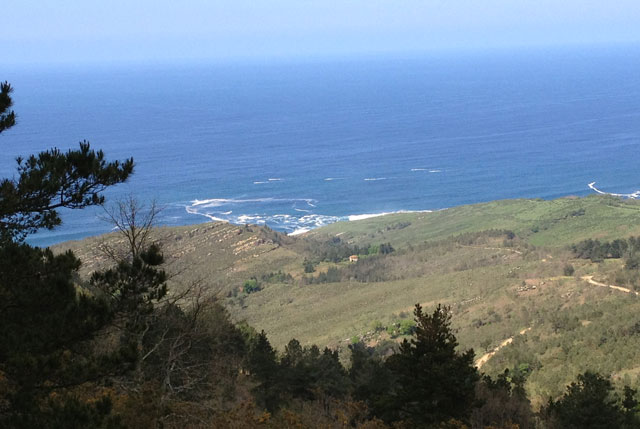In last week’s Friday’s French, I talked about côte meaning coast (among other things). A reader said he thought that littoral meant coast so I thought I should do a second post!

I checked out my trusty Larousse which tells me that le littoral is a sinuous area where the sea or a lake comes into contact with land. Then it goes on to say that it has a wider meaning than either rivage or côte which concern the area directly or indirectly affected by the action of the sea.
It also gives a second meaning i.e. littoral is used when speaking of all the côtes of a country, region, ocean or sea.
OK, so, in practical terms, what exactly does that mean? Examples of use are probably the best indication.
The first that comes to mind is conservation du littoral which means coastal conservation.
Here are some other examples:
Sur le littoral, une maison sur deux est une résidence secondaire. – One house out of two along the coast is a second home.
Avec ses milliers de kilomètres de littoral, la France offre une extraordinaire diversité. – With its thousands of kilometers of coastline, France offers extraordinary diversity.
Les Sauveteurs en Mer contribuent à diminuer le nombre des accidents sur le littoral français. – Lifesavers help to reduce the number of accidents along the coast of France.
Côte, often in the plural, could also be used in all these examples:
Une maison sur deux sur la côte est une résidence secondaire.
Avec ses milliers de kilomètres de côtes, la France offre une extraordinaire diversité.
Les Sauveteurs de Mer contribuent à diminuer le nombre des accidents sur les côtes françaises.
But the register is different. Littoral is more appropriate in a written context.
So when wouldn’t you use littoral? You wouldn’t say Je vais passer mes vacances sur le littoral or Il faut beau sur le littoral or J’adore le littoral. You would need to use côte in all these examples.
Côtier, the adjective from côte, is used in contexts such as bâteau côtier (coaster), région côtière (coastal region), ville côtière (coastal town) and pêche cotière (inshore fishing).
And what about rivage, which I mentioned earlier?
This is closer to our word “shore”, namely, that part of the land subjected to the action of waves and tides. It can be used for both the sea and lakes. Apart from names of camping grounds, restaurants and hotels (Beau Rivage), it’s practically never used. An example would be la baleine a échoué sur le rivage – the whale was beached on the shore.
So, in general, you can just use côte and côtière unless your context is specific.
And while I’m on the subject, when the French are talking about the Atlantic Ocean, they use the word “océan” and if they are talking about the Mediterranean, they use “mer”. whereas in Australia, we tend to use “sea” all the time. Tous les matins je cours ou je joue au tennis et après je me baigne dans l’océan – Every morning I go for a run or play tennis and afterwards, I swim in the sea. We would NOT say “I swim in the ocean” now, would we?



